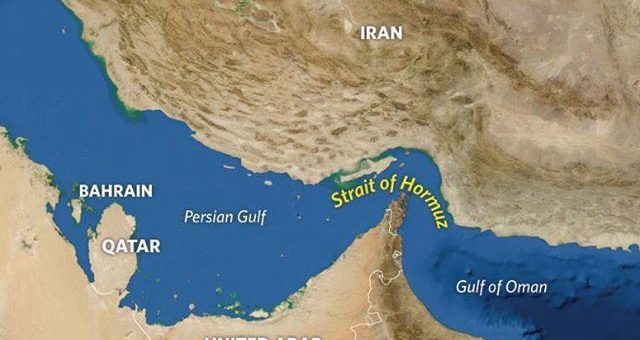On 20 June 2019 the US pulled back from retaliatory military strikes against Iran, after Iran’s targeting of a US drone allegedly operating in Iranian airspace. This came after a series of attacks on vessels in the Gulf of Oman area, most recently on the Front Altair and the Kokuka Courageous. For this reason, Jean Koh, Daniel Martin and Isabel Phillips, HFW, advise brokers to consider their shipowners’ and charterers’ rights while operating in this tense climate.
Shipowners and charterers operating in this climate will have to take into consideration their rights and obligations under their current and future contracts of carriage and their possible exposure if the situation gets worse.
According to Jean Koh, Daniel Martin and Isabel Phillips, whilst charterers can order regarding the routing and the owners’the Master are contractually bound to follow legitimate orders, the Master has the final control over the safety or security of the vessel, its crew and its cargo. As a result, the main question is the importance of the risk and the assessment made by the Master.
If the charterparty has a War Risks Clause, the issue is whether in the reasonable judgment of the Master, the vessel, its cargo, crew or other persons on board may be, or are likely to be, exposed to war risks. The test it set out in relation to dangers experienced by ships within the Listed Areas if the current situation falls within the definition of ‘war risks’ for the purposes of the clause.
[smlsubform prepend=”GET THE SAFETY4SEA IN YOUR INBOX!” showname=false emailtxt=”” emailholder=”Enter your email address” showsubmit=true submittxt=”Submit” jsthanks=false thankyou=”Thank you for subscribing to our mailing list”]
In spite of the fact that many allegations point Iran as responsible for these attacks, there has been no clear confirmation of who is behind the attacks and Iran has categorically denied their involvement. Thus, HFW does not consider the current situation as ‘war’, ‘acts of war’, ‘warlike operations’ or ‘hostilities’ for the purposes of the war risks clause. In addition, while the concept of ‘hostilities’ is wider than that of ‘war’ or ‘warlike operations’, it has been interpreted as meaning acts of or on behalf of a sovereign power. However, should the war risk clause contains events like ‘acts of malicious damage’, the current attacks would fall within the clause.
What is more, HFW adds that the number of attacks versus ships transiting the Strait per day could be considered low. Nevertheless, the unpredictability of the attacks regarding the timing and nature arguably gives rise to a real sense of danger.
Moreover, the type of vessel will also be considered. All the attacks so far have been on oil tankers, with bulkers being less at risk, while an LNG vessel which serves the oil and gas industry may similarly be at risk and may be mistaken for an oil tanker.
Furthermore, based on certain provisions in the charter, owners may argue that performance has been discharged by force majeure and/or Act of God provisions. Regarding force majeure, parties must carefully consider the terms of their contracts, to see which force majeure events are identified in the relevant contract, and if the events in question actually fall within the parameters of the clause.
In case the ships gets blocked or trapped within the Arabian/ Persian Gulf, a charterparty could be frustrated depending on the duration of the charter and the potential duration of the interruption to service. However, it is generally not that likely that frustration will take place. Absent frustration or force majeure in a time charter context, the vessel could remain on-hire while trapped/blocked. On the other hand, in a voyage charter context, the owners would generally carry the risk of delay, subject to contract terms dealing specifically with such a situation.
Continuing, Jean Koh, Daniel Martin and Isabel Phillips, note that according to how the situation develops, there may be worries as to whether ports in the Listed Areas are safe, if they fall within the trading limits in the charter and whether owners have the right to deviate to another port.
A port is considered as safe if ships can reach it, use it and return from it without, in the absence of some abnormal occurrence, being exposed to dangers which cannot be avoided by good navigation and seamanship.
According to a past case, for the current situation in the Strait of Hormuz the percentage of vessels attacked could be seen as relatively low in the context of the total number of vessels trading in the Gulf area. Therefore, it is questionable that the attacks would be seen as normal of the Strait of Hormuz. Consequently, refusing voyage orders to such ports based on the grounds that they are unsafe may be risky. This does not mean however, that it the situation cannot change if there are more or more frequent or regular attacks.





























































